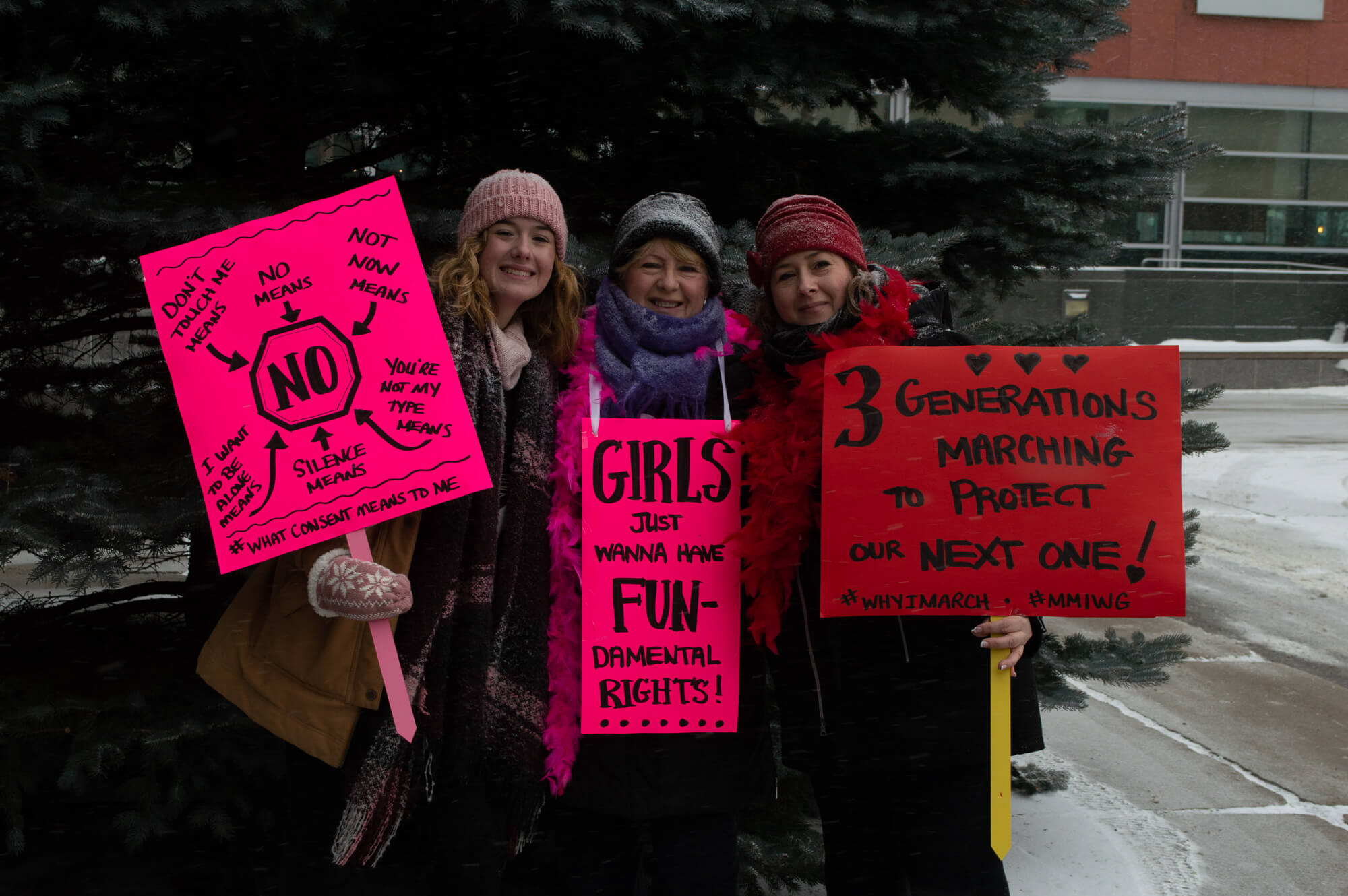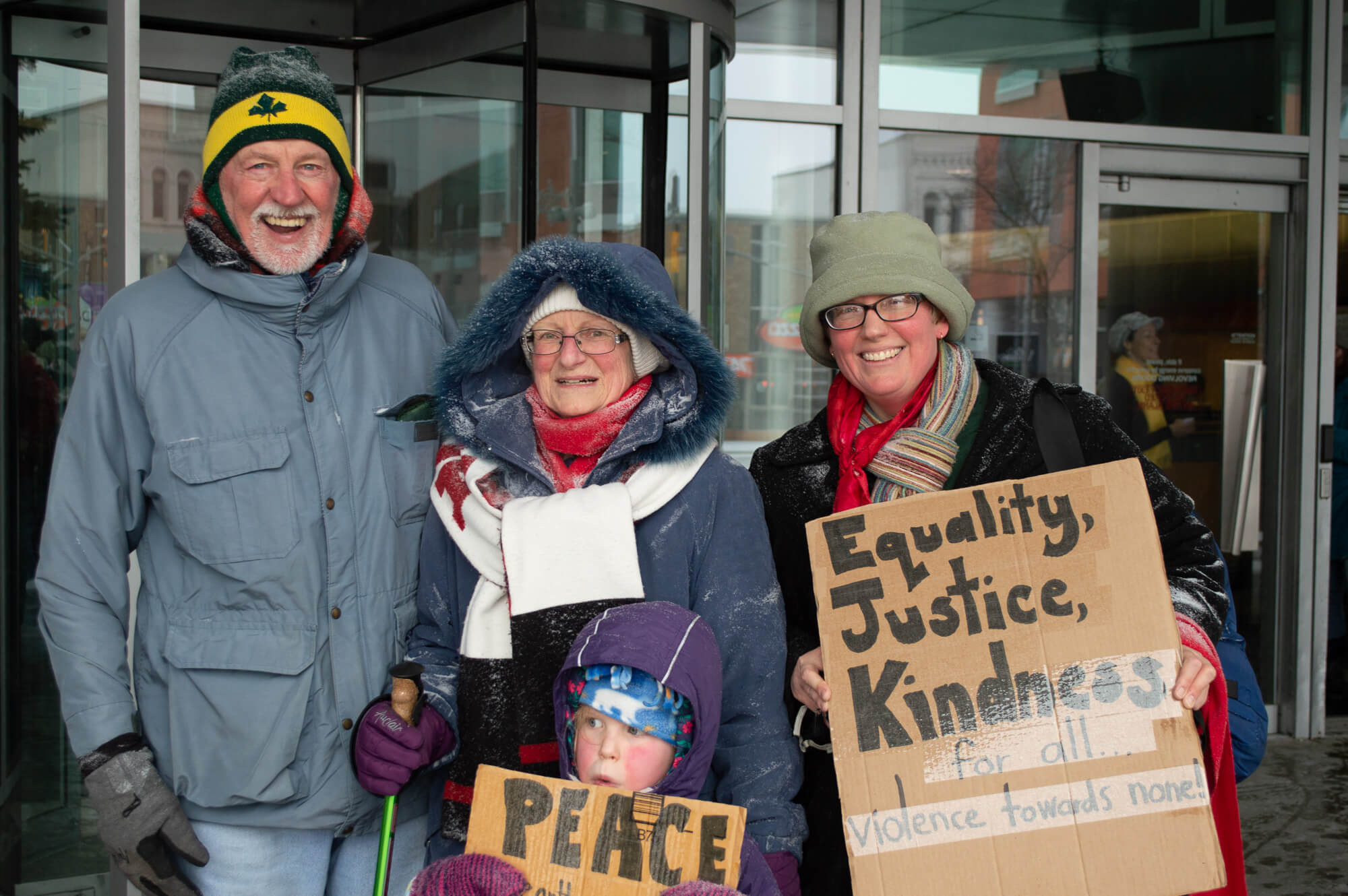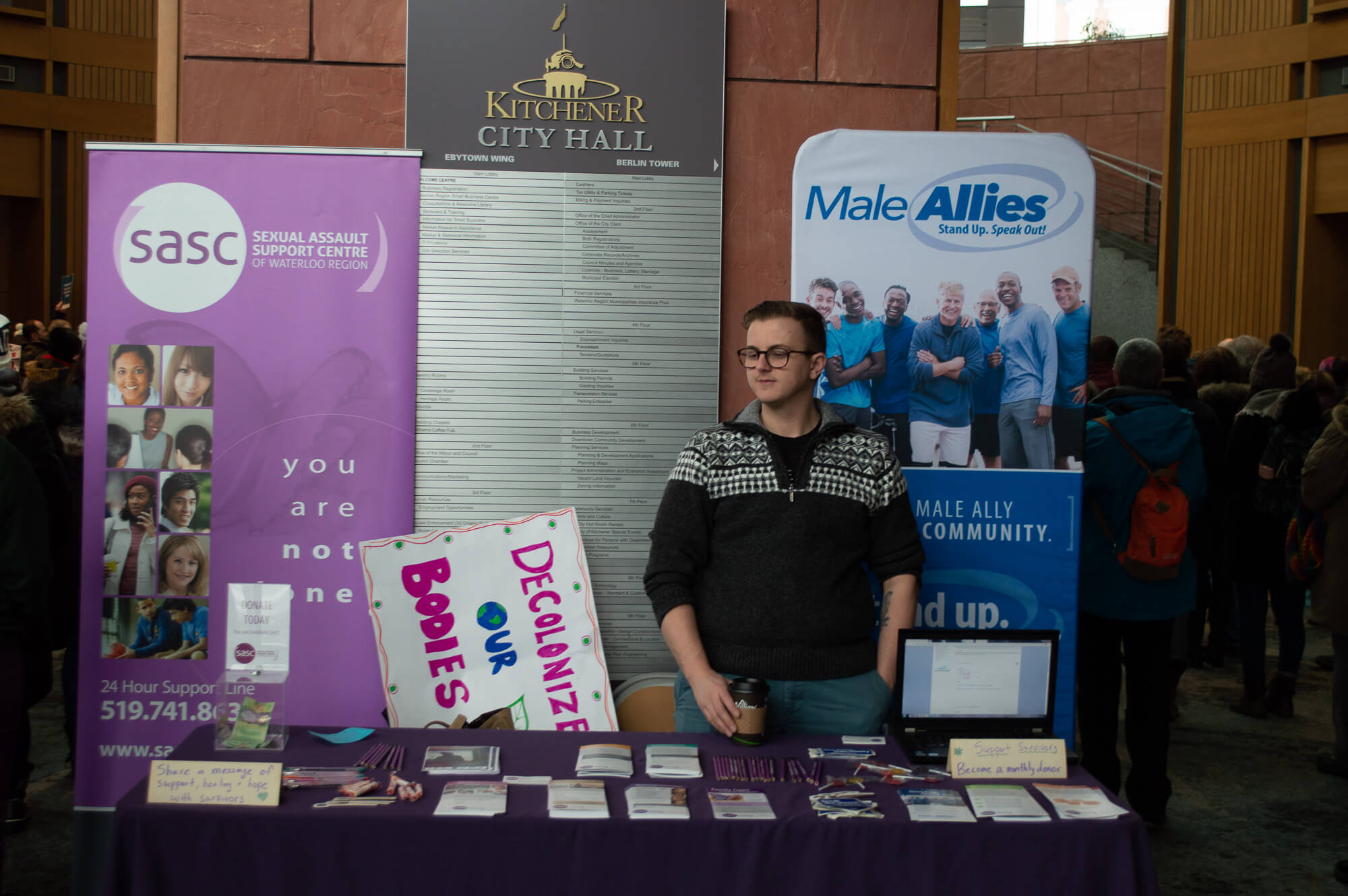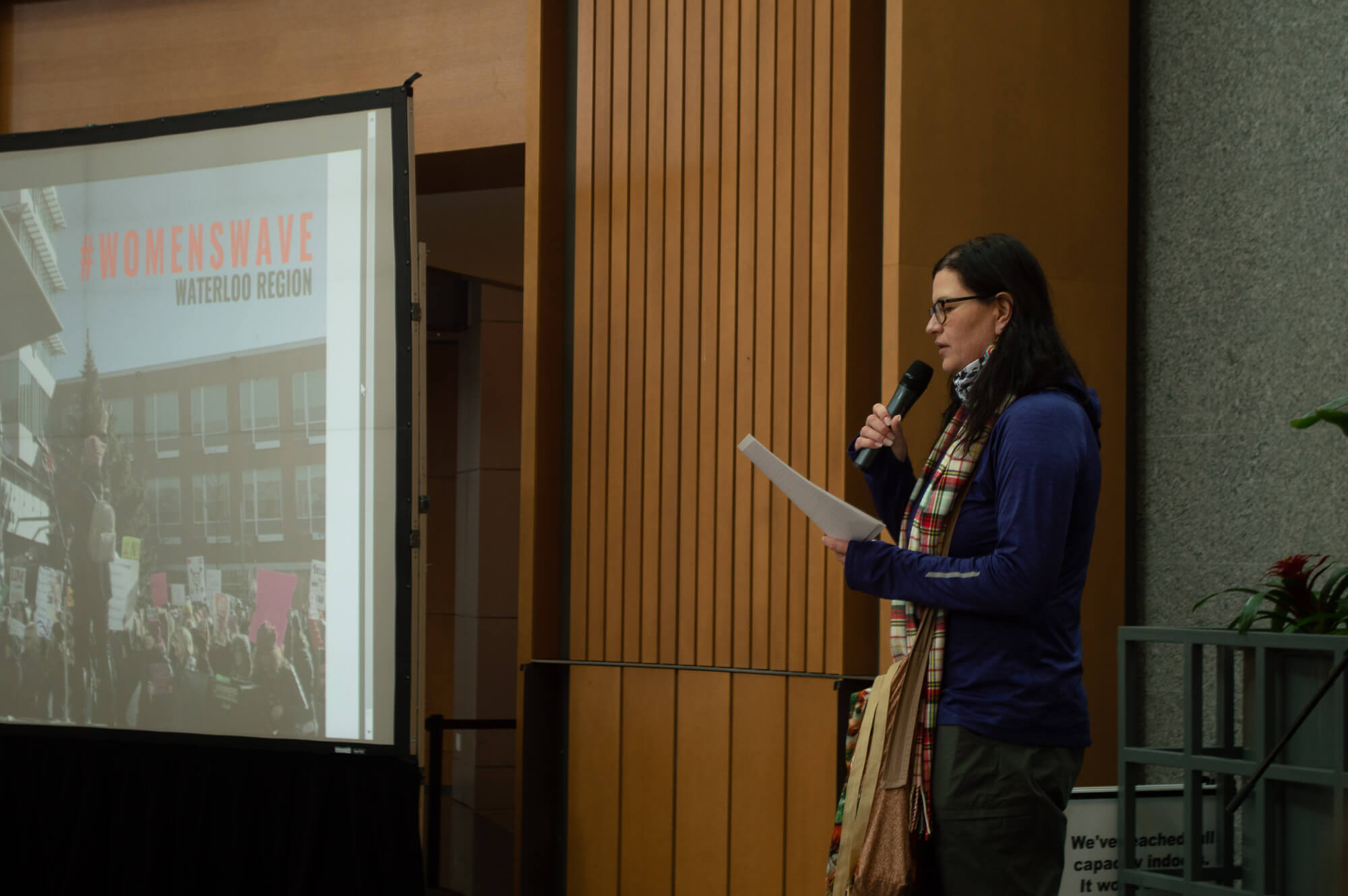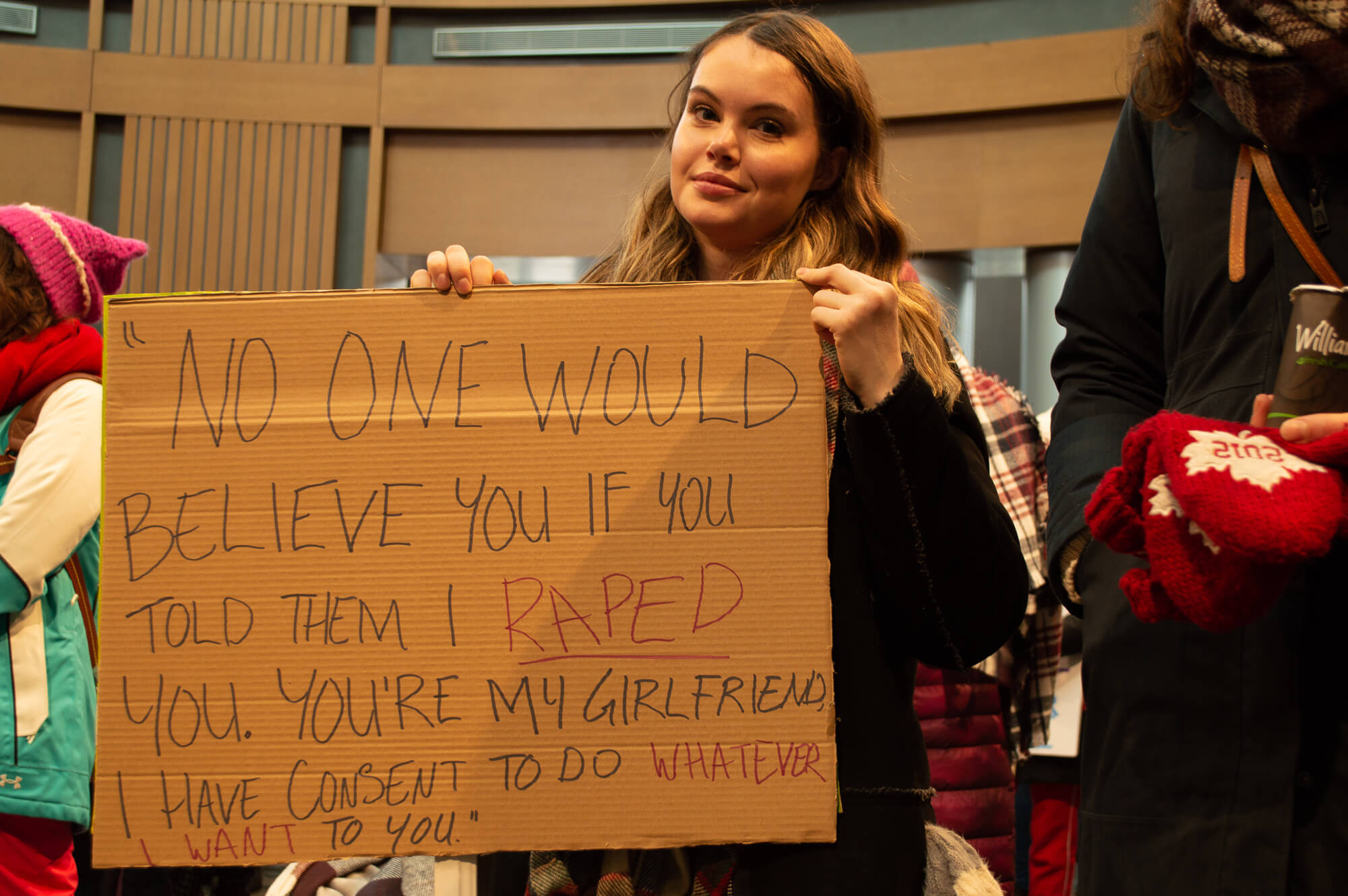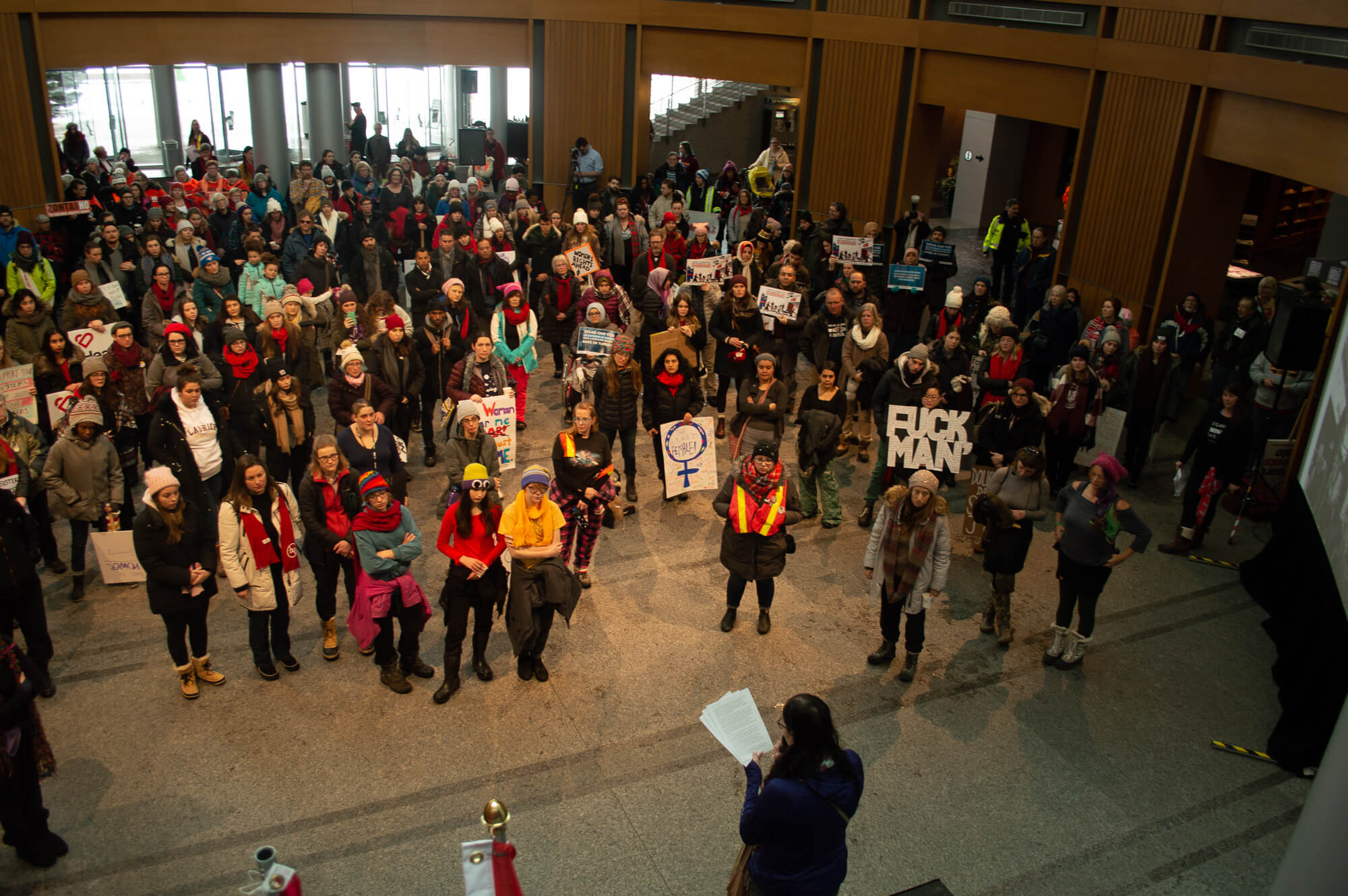Hundreds of people gathered on a bitterly cold morning on Saturday, Jan. 19 in Uptown Waterloo to join the third annual Women’s March. The theme for the march this year was “End violence against women” and demonstrators were asked to wear a red scarf to raise awareness regarding the disproportionate violence against Indigenous women and girls in Canada, as well as honour the missing and murdered Indigenous women and girls.
The women and their male allies then marched down King Street to Kitchener city hall, where they all packed into the centre rotunda, many waving signs showing support for women and demanding change as they listened to speakers share their experiences. People from all walks of life were represented — men and women, boys and girls, even young families and elderly couples.
Teresa, last name withheld to protect her daughter’s privacy, attended the march with her young children.

“Why did we march? Lot’s of reasons,” Teresa said with a laugh. “Probably because she (her daughter) represents the disabled community, and to teach her about women’s rights and Indigenous rights, help her learn about advocacy and standing together.”
Several community organizations that deal with violence against women were also there to raise awareness in the community about the help they are able to give with various services.
The organizations represented were Campaign School, GLOW University of Waterloo, Community Justice Initiative, Feminine Harbour, Coalition of Muslim Women KW, SPECTRUM, Sexual Assault Support Centre, SHORE Centre and ZONTA KW.
“We essentially are providing services to the community for people, making sure they have support and access to the different pieces that they need on their healing journey,” said T.K. Pritchard of the Sexual Assault Support Centre of Waterloo Region.
“We started as a grassroots collective in 1989, so this year we’re celebrating our 30th anniversary, so we’ve always had very strong connections to feminist movements and the women’s movements. All of our work comes from an inter-sectional feminist lens. We provide counselling, family support, we have an anti-human trafficking program, and we have a public education program where we go into schools and community groups and talk about things like consent, masculinity, sexual violence, bystander intervention, all those types of things,” Pritchard said.
Saarna Parent, a volunteer with SPECTRUM, located at 283 Duke St., said her organization supports LGBT individuals.
“We’re actually a community centre, as well as doing many groups, like trans peer support, SPECTRUM prime, which for older adults, we have a game night, and it is all based around LGBT.”
“We have resources for people who come to us in need, doctors for if someone is ready to make a transition, as well as people to speak to if they’ve been victims of sexual abuse,” added Parent.
Cassie Myers, a University of Waterloo alumna and the ambassador for the Waterloo Region branch of the Women’s March, said she participated this year for a lot of different reasons; among them, to show support for her community and to show support for women of colour who are often underrepresented in boardrooms and the STEM fields.
“I marched for black women — young black women who often aren’t represented in professional spaces and or even in activism,” explained Myers.
“Violence comes in different shapes and forms, depending on where you are in the world, I do believe that it is still an issue that is prevalent in Waterloo Region. For example, the sexual assault centre has over 180 people on their waiting list, waiting for counselling,” said Myers. “These are victims of sexual assault or harassment waiting for help.”
“Kitchener-Waterloo is also a hub for sex trafficking, often in which the victims are Indigenous women and girls,” Myers added.
“A big goal for us (Women’s March Waterloo Region) was to shine a spotlight on the work that is being done by all of the other folks here in the region. The Women’s March was just a bridge to that,” explained Myers. “Locally, we believe it is about bringing the attention back to these organizations, what do they need, and how can we be allies to them.”
“It’s definitely time that men and masculine folks step up and stand alongside people who are demanding change. In order to see sustainable lasting change, everyone has to to be committed to that,” Pritchard said. “We have to follow the leadership of women, trans and non-binary folks, and people who have experienced sexual violence, but it’s really important that we’re not silent and that we’re making change.”

